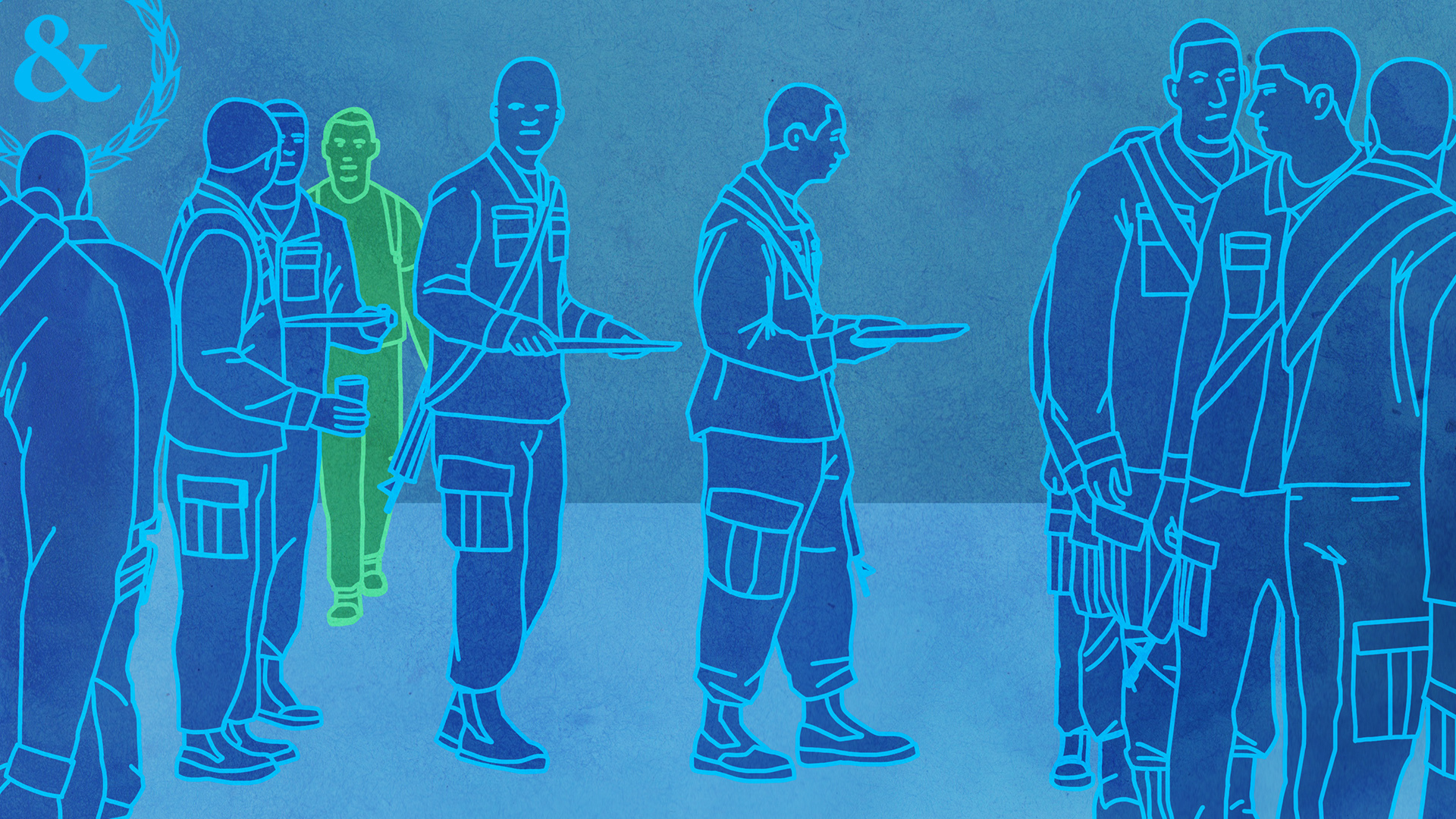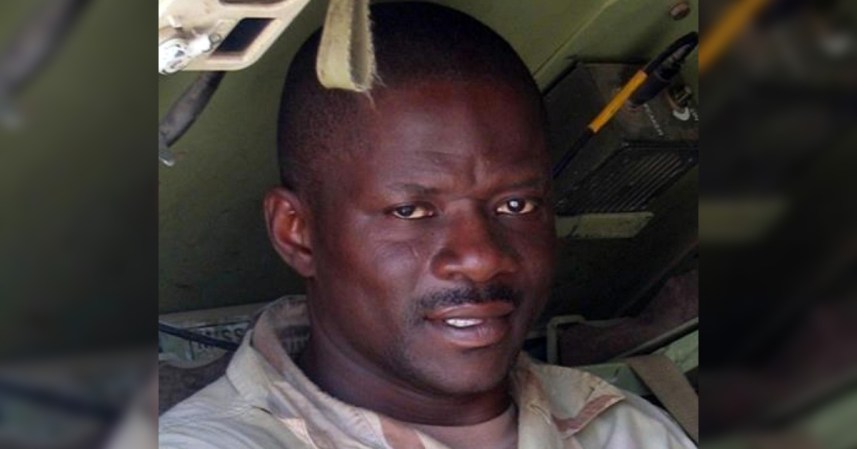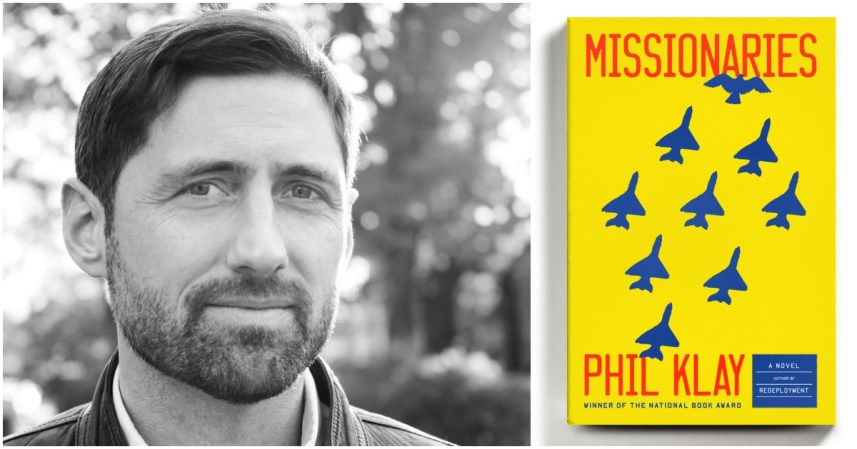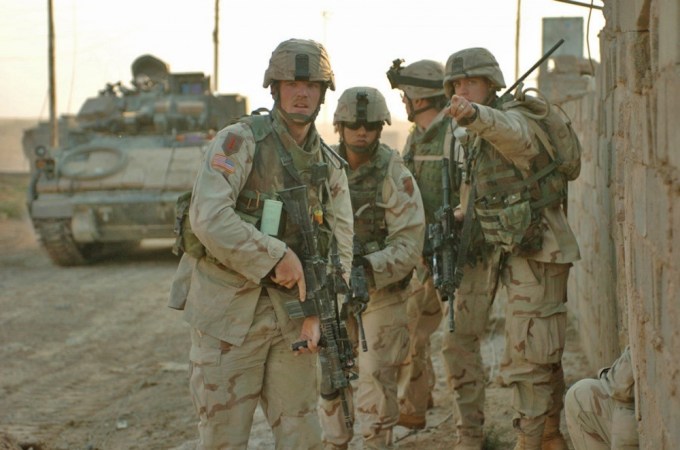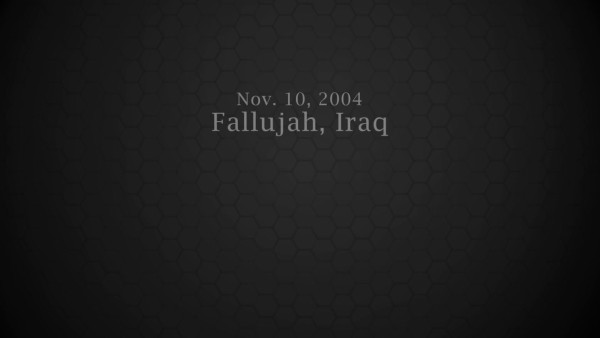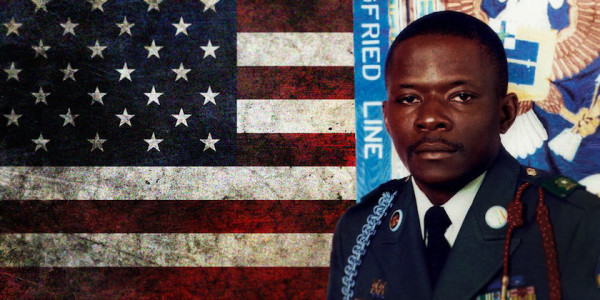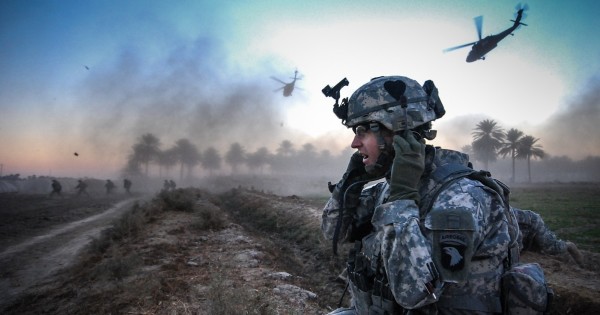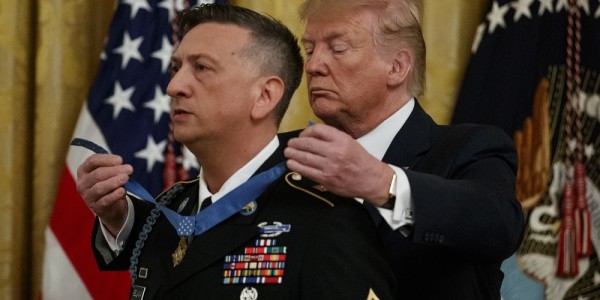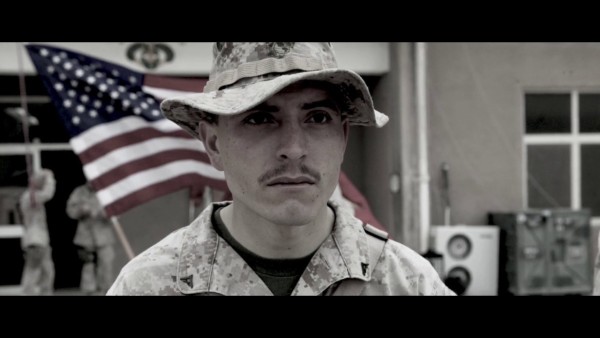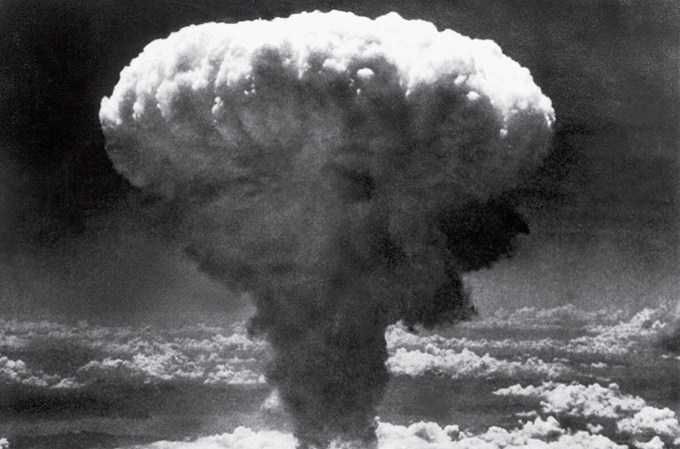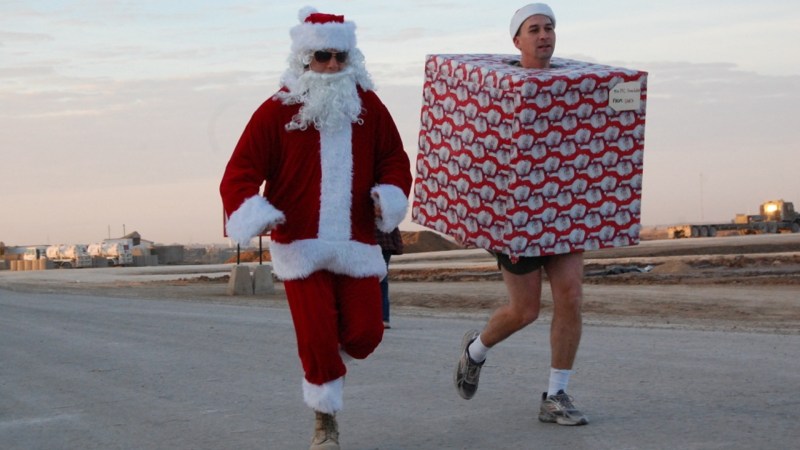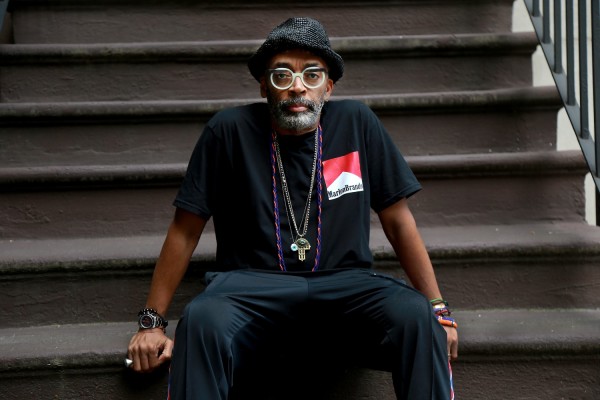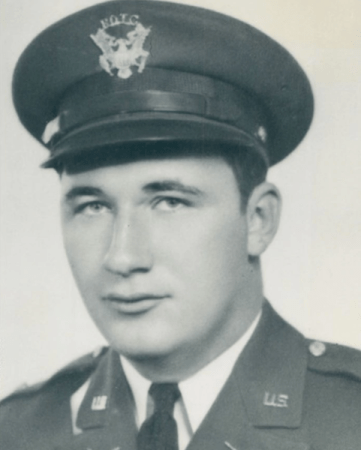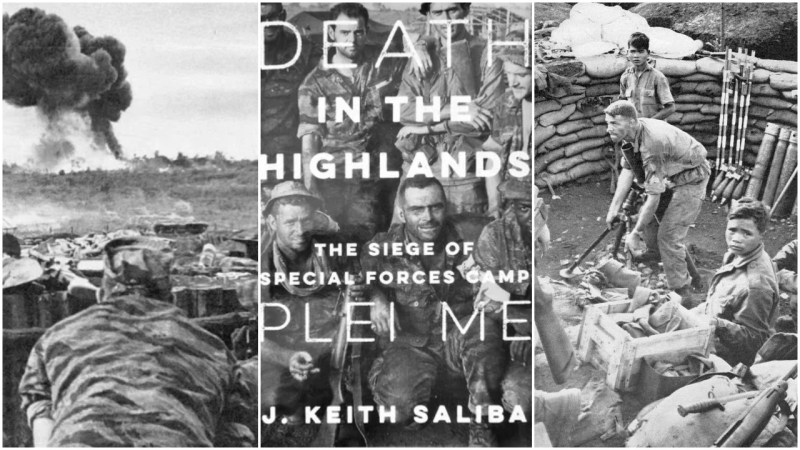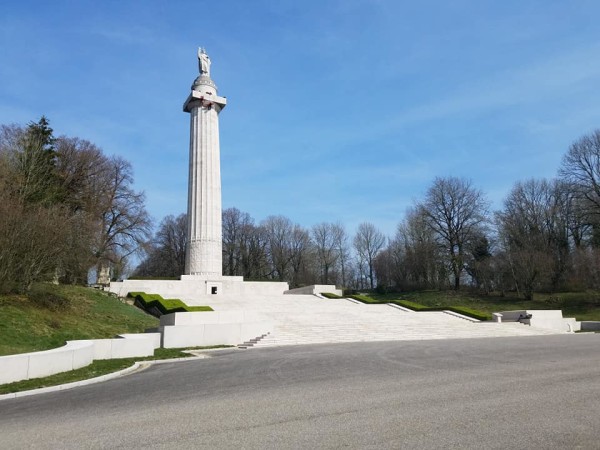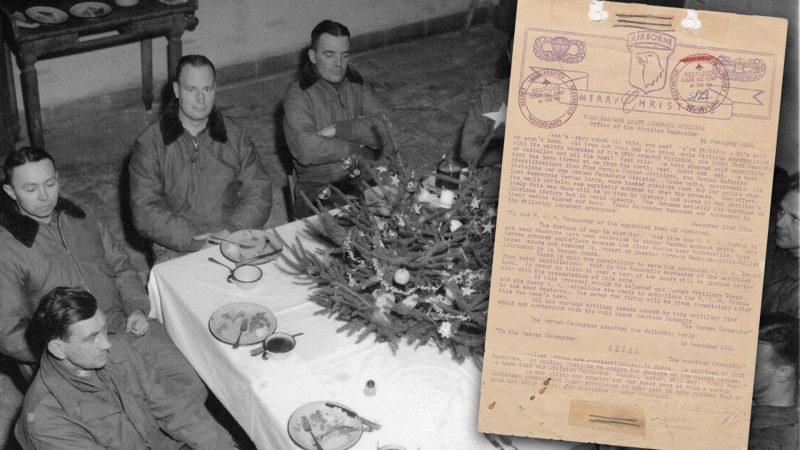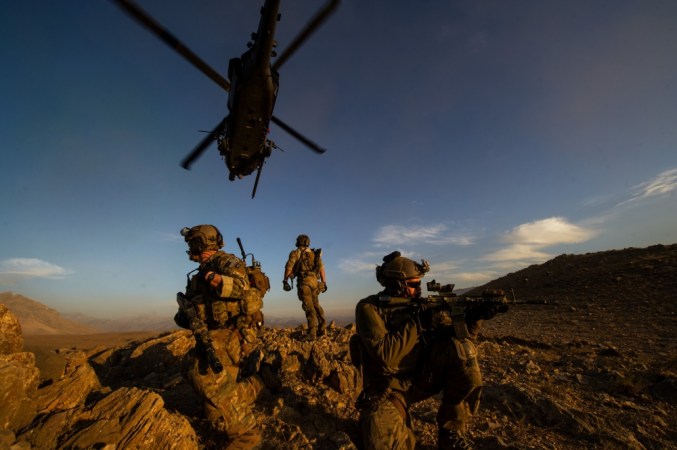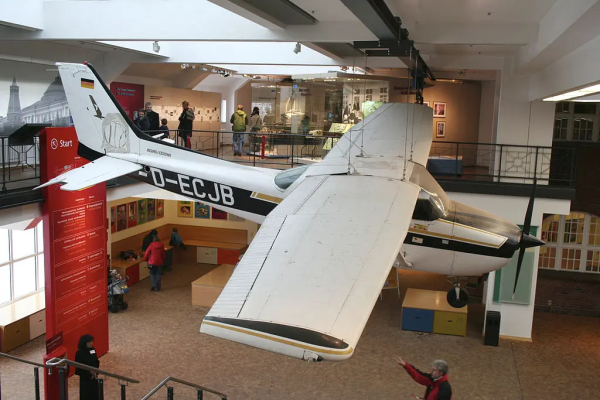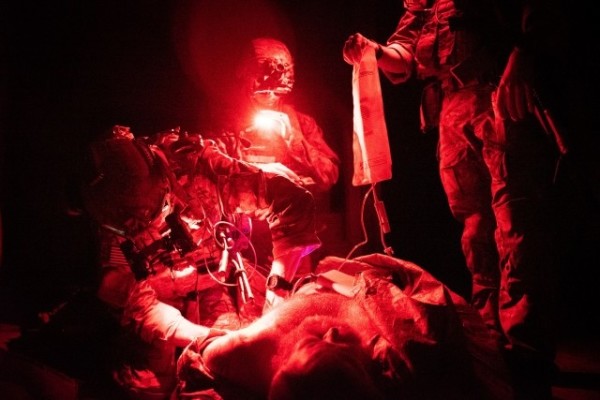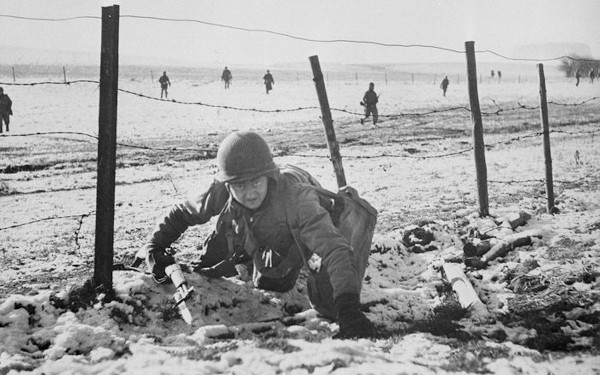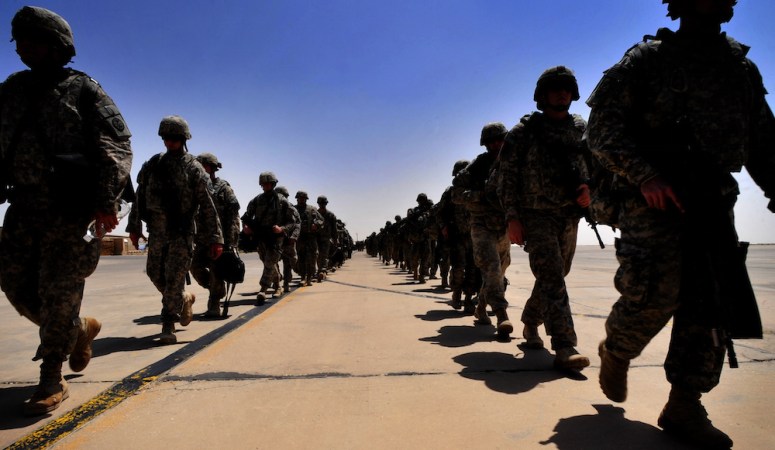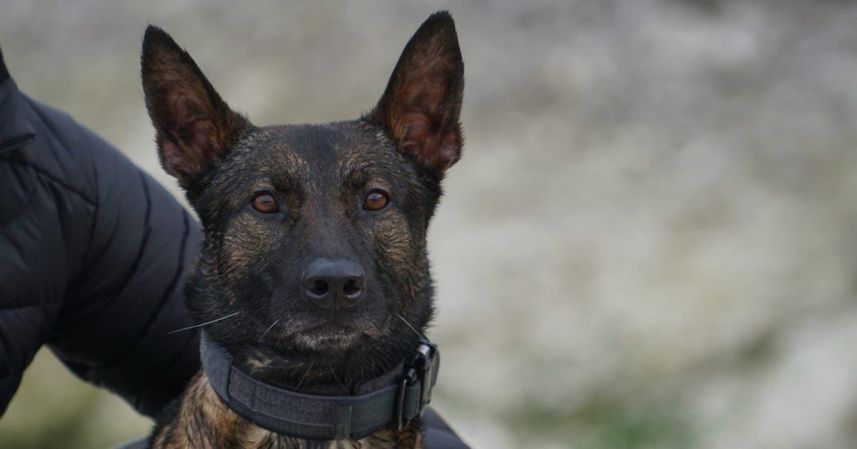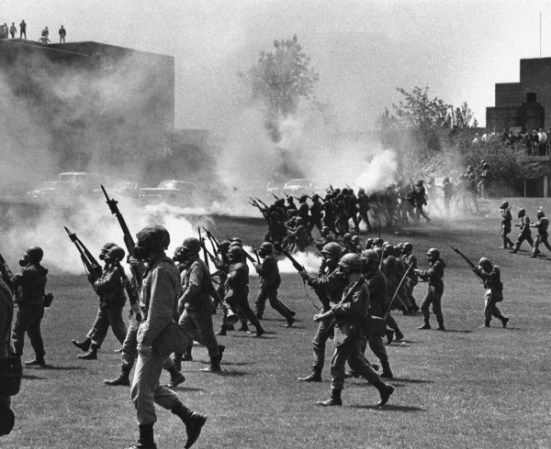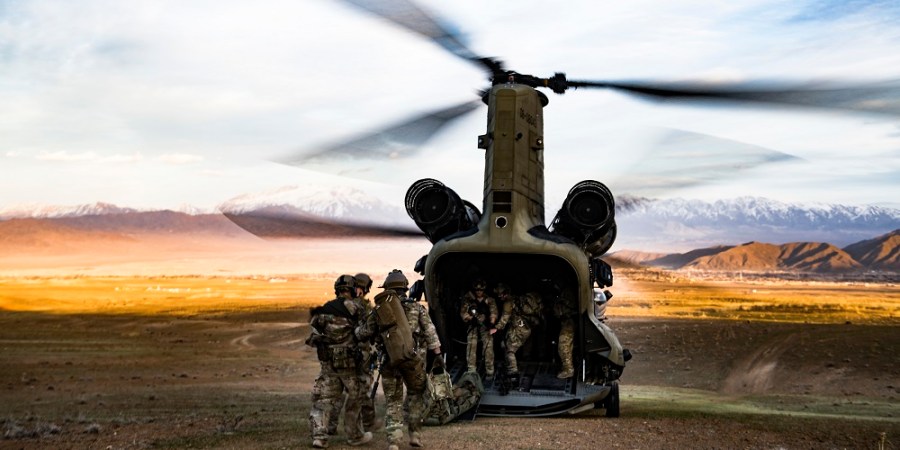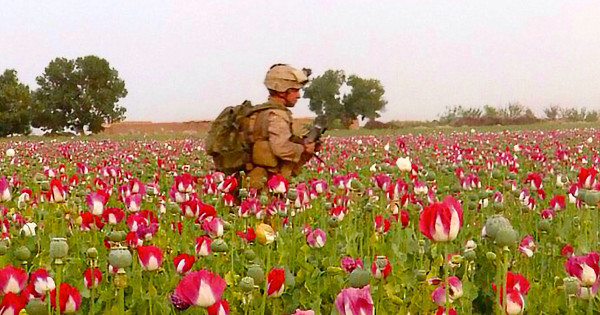Mosul, Iraq. The date was Dec. 21, 2004, four days before Christmas, and the air was cool and crisp, allowing us to soak up the desert winter weather before the unbearable spring and summer heat was upon us. That morning, I woke up in a place where I was fortunate enough to have had a mattress to sleep on. As I made my way outside towards the bathroom trailer, I passed by hooches that housed other soldiers who were, no doubt, still sleeping soundly and comfortably inside. Some of the trailers were festooned with Christmas decorations that families and friends had sent over.
Clean and shaven, I knocked on the door of some fellow soldiers’ room and asked if they were ready to go to breakfast. It was still early, but any time we had the opportunity to eat breakfast in the dining facility, or DFAC, we made sure to take advantage of it. As we began the fairly long walk to the DFAC, I don’t remember what we talked about, but it was probably similar to every other conversation we’d had while inside the safe confines of a secure Forward Operating Base. Small buildings that functioned as shops lined both sides of the main dirt road of the FOB. DVDs and knock-off Rolexes were just some of the items the popular shops contained. I made a mental note to stop by the DVD shop later to see if they had any new releases. After a quick half-mile walk in the still, cool air, we arrived at our destination ready to devour omelets, bacon, and any other food we could get our hands on.
We enjoyed our breakfast, which was especially good because just a few days earlier, we’d gotten the order that body armor was no longer required inside of the DFAC, after nearly a month or so of it being mandatory. We were never really given a good explanation as to why we were supposed to wear it, but we understood that it probably had something to do with the mortar rounds that exploded daily around the huge “clamshell” tent, visible from miles away. The constant daily barrage of exploding mortar rounds was just a part of life at this point. So much so, that the days of soldiers hurrying under concrete bunkers for cover any time the enemy attempted a mortar strike were long gone. We got tired of doing that after the first month in-country. We would average at least 10 mortar attacks a day, and most soldiers decided they would allow destiny to run its course, and eschewed the safety of the bunkers.
Our convoy mission that day was simple: we were to convoy out to the Mosul Provincial Palace and resupply the soldiers of our Platoon who were providing security at the compound for local Iraqi government officials. Our vehicles packed with 5-gallon water jugs and boxes of MREs, we said a quick prayer and began the approximately 10-mile journey to the compound.
The traffic there and back was horrendous and put the traffic of my native Southern California to shame. But it was nothing that we hadn’t dealt with a hundred times by that point, so no one really thought twice about it. We resupplied our guys out there at the Provincial Palace, and they were eternally grateful for the water, food, and extra gear that we brought. All in all, it was shaping up to be a pretty average day in Iraq.
When we got back to our FOB, we realized that the DFAC was still open and serving food, which meant that we would be able to eat at least two hot meals in the same day, which was an incredible luxury for us.
As we passed through the entrance checkpoint of the FOB, the call was put out over our radios that we were going to drive the vehicles up to the DFAC because lunch was ending within the hour. As we arrived, we parked our two Stryker vehicles in an adjacent open area and hastily made our way toward the DFAC. We passed those all too familiar concrete bunkers and headed to the handwashing stations that were set up just outside the DFAC entrance. It was required that all soldiers wash their hands at the stations before entering. After a brief wait, I washed my dirty hands with soap and water, dried them off with a brown paper towel, and turned to make my way into the DFAC. I briefly paused to wait for a couple of the other soldiers who were finishing up at the stations, so we could all go in together. A minute later, the other soldiers and I made our way towards the entrance.
It was at that moment that our lives changed.

Near the front entrance of the DFAC, a huge percussive blast shook the ground and temporarily deafened me. An enormous explosion had just gone off. We instinctively made our way to the concrete bunkers nearly 25 yards from where we were. It couldn’t have taken more than 10 seconds before we were huddled together inside. I remember one of the soldiers laughing and making a comment that the blast was really close. I don’t know exactly what he said because my ears were still ringing. No more than 20 seconds later, the huge double doors of the DFAC entrance burst open and a rush of soldiers, unarmed and bloody, came flying out.
“All those people… oh my God,” is the first thing I heard coming from a female soldier who was one of the first to exit the DFAC. It was at that point we realized the blast wasn’t close — it had occurred inside the DFAC.
My initial understanding of what happened was that a mortar round had impacted inside of the DFAC and people were injured. I don’t remember telling myself to do it, but I immediately ran out from under the bunker and made the 25-yard sprint to the entrance of the DFAC, with several other soldiers in tow. As I made it through the entrance, the first thing that struck me was the huge hole at the top of the DFAC tent. Instead of white canvas, all I saw was the clear afternoon Iraqi sky when I gazed up. As I began to look further inside the DFAC I noticed the once organized plastic white tables and chairs scattered about, in which, just moments earlier, hungry soldiers sat devouring their lunches. Smoke and dust lingered across the tent, which made visibility somewhat hard.
The familiar smell of freshly detonated explosives lingered in the air. Puddles of blood, torn apart limbs, and scattered rifles lined the DFAC floor. There were wounded soldiers, both Iraqi and American, quickly making their way past me, to get outside. Glancing to my right I saw what looked like the remains of one of the foreign civilians who worked at the DFAC, bloody and beaten, and clearly dead. An arm missing and half of his or her head — I couldn’t tell if it was a man or a woman — damaged beyond recognition. To my left, one of the plastic tables that had survived the blast and stayed upright had a soldier still sitting in a chair. He was slumped over with his head on the table. Moving closer I observed a large entry wound on the back of his head. The soldier was dead, literally face down in a plate of spaghetti.
I can still remember trying to process the scene and understand what I was looking at. I distinctly recall thinking to myself that this wasn’t possible. As I observed the chaos all around me, my mind went into overdrive. I was viewing the scene as if I were peering through a camera lens. The smoke and dust were still stagnant and thick. I felt like everything was happening in slow motion. There was no noise. Even the loud ringing in my ears had gone silent. The smell of smoke and explosives penetrated my nostrils. A moment later, the ringing started in my ears, my head began to ache fiercely, and fear crept into my mind. This was something that we’d always trained for, but never really thought would happen. It was a mass casualty situation. It looked as if hundreds of fellow soldiers were wounded and dozens were dead. The years of training quickly raced to the forefront of my brain, and I told myself it was time to help.
I moved to a plastic table, kicked a few plastic chairs out of my way, and approached a wounded soldier lying on the floor. He was on his left side and moaning. As I knelt down beside him to begin my medical assessment, the first thing I noticed was he only had one finger remaining on his left hand. What were once his fingers, now consisted of chunks of flesh that were gushing blood. His hand was a bloody gash where his palm should have been, and his left wrist had been damaged as well. I told him he would be alright as I continued my medical assessment.
As I wrapped my arm around his back, I blindly ran my hand up and down to see if I could feel any blood. I did not want to roll him over for fear of worsening an unseen injury. At the small of his back, and slightly to the right, I felt blood. I remember thinking that was not good. The soldier hadn’t moved his legs or arms since I had gotten to him, and I feared he may have been paralyzed. After finding the blood, I ran my fingers over the area and discovered the entry wound. I jumped to my feet and grabbed a passing soldier, telling him to take my place holding the soldier on his side. Once the soldier had control, I positioned myself at the back of the bleeding soldier. Observing the wound, the first thing I thought was that it was strange that the entry wound was circular. I provided first aid to the soldier and ordered a couple of other guys to get him on a litter and moved out of the DFAC.
I provided aid to numerous other soldiers and participated in flipping plastic tables over and utilizing them as makeshift stretchers to help evacuate others. I hadn’t been outside the DFAC since I initially went in, and as I made my way out of the smoke and dust-filled tent, I saw what looked like hundreds of wounded soldiers lining the graveled ground surrounding the DFAC. Wounded soldiers were being triaged – receiving care based on the severity of their injuries. The problem was there wasn’t enough medical personnel to properly treat all of them. While I and almost every other soldier had first aid training, we did not have the training necessary to effectively treat severe injuries. I immediately began moving toward wounded soldiers that were lying on the ground and didn’t have anyone providing aid to them.
The first soldier I approached was lying on his back. I remember he had his right hand balled up into a fist and he was squeezing his hand as if he had something in it. I began to conduct my medical assessment on him and immediately noticed blood pooling underneath his shirt, so I tore it open to get a visual. To my surprise, I saw another perfectly round entry wound located on the left side of his chest.
I instantly knew the soldier had a sucking chest wound, one of the worst injuries. I began flashing back to our pre-deployment medical training, covering the treatment of sucking chest wounds. To this day I can remember all the times during the training when I thought we would never see this type of injury because we would always be wearing our body armor. I began to feverishly look for a first aid bag that would contain some of the supplies necessary to treat the wound. I yelled at a fellow soldier walking to the left of me to find a medic and get them to my position as quickly as possible. Someone threw gauze at my feet at some point and I decided that was all I was going to get for the time being. I knelt beside the wounded soldier and tried talking to him, but he couldn’t say anything.
I will always remember the gurgling sound he made as he attempted to communicate. His face was ashen and his left foot was moving from side to side, almost like he wasn’t in control of it. I remember yelling for a medic, hoping there would be one nearby. But there wasn’t. I placed the gauze on the entry wound of his chest and continued to tell the soldier he would be fine. Time felt as though it was crawling by. It was only seconds later though, that the soldier began to make a choking sound. I knelt hopelessly over him, looking directly at him, telling him it was okay. Less than a minute later he had taken his last breath. There was nothing I could do. I hesitantly got up to my feet and left the soldier’s side to begin looking for the next wounded casualty I could attempt to help.
I provided medical aid to everyone I could. American soldiers, Iraqi Army soldiers, and foreign workers. Hundreds of uninjured soldiers were now at the casualty site as well, helping to treat the wounded. I do not know how much time had passed since the initial moment of impact, but it couldn’t have been too long. I only know that because I heard that helicopters were flying in to evacuate the wounded to hospitals. I ran to where we had parked our Stryker vehicles earlier and grabbed a few smoke grenades out of my body armor pouches. I coordinated with another soldier and we designated a landing zone for the incoming helicopters. I pulled the pin on a smoke grenade and tossed it into the middle of an empty field just adjacent to the DFAC. That was our landing zone. I recall watching the thick red smoke rushing from an olive drab green canister and billowing into the air as the first helicopter landed. As that occurred, I began assisting with carrying wounded soldiers to the helicopters.

Hours had passed. All wounded soldiers were finally evacuated, either by helicopter or truck. I was one of the first people in the DFAC after the explosion, so I felt it was my responsibility to stay until there was nothing left to be done. I wasn’t alone. The same soldiers I entered the DFAC with were right beside me. Doing what they thought was right. So were many others. As I looked across the area that only a few hours earlier had numerous wounded soldiers on it, I saw remnants of chaos and hell. Bloody boots, torn uniforms, bandages soaked in now dried blood, and much more. I thought to myself that it was over. What I would learn later on in life, is that was actually the “easy” part. The hardest part of the whole ordeal is having to relive it over and over again.
We made our way back down the long dirt road that ran through the middle of the FOB. This time there were no conversations. Just silence. The sun was beginning to set and the air was getting cold. The four of us made our way into one of the soldier’s trailers. Faces and hands still covered in the dried blood of our comrades, we submissively dropped onto the small mattress located in the middle of the trailer. I remember looking at one of the soldier’s boots and observing that one of them was almost fully covered in dark, dried blood. I noticed another soldier staring at his hands, like he was just noticing the dried blood that was on them. Four hardened Infantrymen are laying on a small mattress in a 10-by-10 trailer. Our feet dangled off the edge of the bed as we stared up at the white-washed, bare ceiling, in the dimly lit trailer. Nobody talked; it was as if nobody knew what to say, or was too shocked to say anything. Then the tears began to flow. One soldier after the other. Four soldiers who were already battle-tested and had experienced losing fellow soldiers in the months leading up to that day. Men who had trained for years to go to war, who had taken the lives of enemies in combat. We cried. I don’t know for how long, but we cried. Nobody said anything or did anything. We laid in the spots we originally took, continued looking up at the ceiling, and wept.
After an unknown amount of time, we simply stood up one by one, and made our way back to our own rooms. As I stepped into my room, I laid down, wondering again, what the hell had happened. Questioning myself about whether I did enough to help my fellow soldiers. I interrupted those thoughts temporarily, to tell myself I needed to take a shower. After slowly making my way to the showers and cleaning up, I laid down in my bed and closed my eyes. My thoughts instantly raced to my wife and son who were back home in the states. Soldiers had died, which meant all communications were shut down until the deceased soldiers’ next of kin were notified, so I couldn’t call my wife and tell her I was okay.
I didn’t think the event would be headline news back home. But it was. There was nothing I could do except wait for communications to come back up. A couple of days later, right before Christmas, they did. I remember waiting in line at the phone trailer, thinking about what I would say to my wife. As it became my turn to use the phone I dialed the number and listened to it ring a few times. I remember my wife saying hello on the other end. All I could muster was a “hey.” She began to sob. After talking for 15 minutes it was time to say goodbye. I hung up the phone and made my way back to my room. As I lay there in the dark, alone, my mind began to make its way back to the DFAC. But somehow I managed to fall asleep.
The next day started unlike any other day in Mosul, Iraq. It was Dec. 22, 2004. We had lost fellow soldiers, including some close to us. We experienced war like none of us thought we would. That morning we didn’t have a DFAC to go to for breakfast. It didn’t matter. We wouldn’t have had time. By 0630 we were in our vehicles, saying a quick prayer before we headed out on our next mission.
Investigations later determined that a suicide bomber had detonated a vest filled with ball bearings in the DFAC. There were undoubtedly security lapses and intelligence failures that precipitated the attack. Every soldier I have spoken with who was there that day doesn’t blame anyone other than the enemy. There is no point for us to find the root cause of how it happened.
We only hold those soldiers we lost in our hearts and minds. When the memories of that day unexpectedly play out in my mind, all I think about are those that were lost and the families and friends who have to live with that pain every day.
+++
Jeremy Fricke served in the Marine Corps between 1998-2002 and the Army from 2002-2018 as an Infantryman. He deployed to Kuwait, Kosovo, Iraq and Afghanistan. He works in the security industry and lives in CO with his family. In his free time, he is working to establish a 501(c)3 Non-Profit which will help provide job resources for unemployed veterans.
